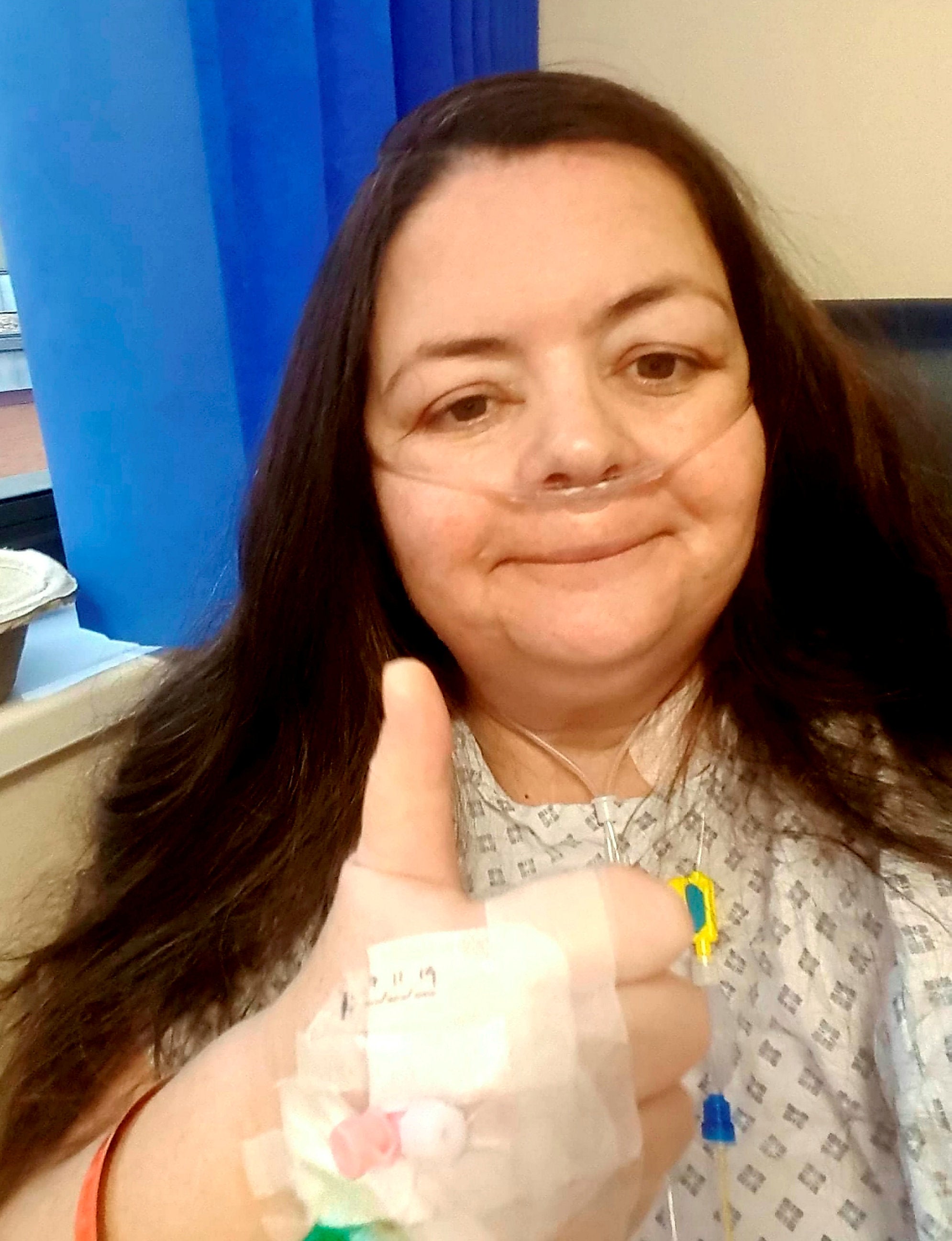Woman diagnosed with brain tumour while battling bowel cancer warns of telltale symptoms
Karen Bucknall started suffering headaches during chemotherapy
A woman who only discovered she had a brain tumour while undergoing bowel cancer treatment has warned others to look out for the telltale symptoms.
Karen Bucknall, 52, was diagnosed with a benign tumour after suffering headaches during chemotherapy for bowel cancer.
She spoke out as a charity warned that research had shown that 72 per cent of people in the UK are unable to name a single symptom of a brain tumour.
In 2020 while undergoing treatment for stage 3 bowel cancer she started experiencing severe headaches which she thought were caused by her chemo.
The following year she was diagnosed with a benign acoustic neuroma - a non cancerous brain tumour.
Karen, from Cheltenham, said: “I was getting really bad headaches and I kept getting told it was due to the chemotherapy.
“I continued to tell them how the headaches were really horrible, my hearing was going, my balance and mobility weren’t great - I was having noise overloads.”
After ringing the bell in July 2020, Karen continued to experience severe headaches saying her brain was going “all over the shop”.
Trainee journalist Karen couldn’t focus and found it hard to remember the details she needed.
Karen was finally diagnosed with a benign acoustic neuroma - a non-cancerous brain tumour - in December 2021.

According to The Brain Tumour Charity a survey of 1000 people in the UK, 72% of people said they are unable to name a single symptom of a brain tumour.
She said: “It felt like a huge relief because I knew there was something wrong with me. I was like ‘oh my god it is not all in my head’ it felt like the missing piece of the puzzle.
“The only way I look at my condition logically is that you are not defined by cancer. I keep myself busy, I am doing pageants and modelling.
“What is the alternative, just wait to die.”
Karen’s tumour is currently stable and she has MRI scans each year to monitor it.

She is left with the aftereffects of the tumour which impacts her hearing and her ability to process sound – using headphones to listen to music is physically painful.
To raise this awareness Karen enters beauty pageants does modelling work and raises money for charities that are close to her heart.
She is a trailblazer in the field and her biggest aim is to promote self-confidence, self-esteem and positive body image.
Karen said: “The pageant world, my pageant journey and my pageant friends saved me, winning pageant titles, and awards.
“It also gave me purpose and I want to be a role model for those who are struggling with their health and well-being.

“I want to help to empower women and children and work with all the wonderful people I meet to raise awareness of invisible disabilities.”
In September, Karen will be getting married to her partner after he proposed two weeks ago.
She said: “Every month is like a year to me. You don’t put things off until tomorrow, you do it now as tomorrow might never come.
“At the end of the day, if you want to do something, do it now - life is very precious.”
Karen added: “Living with these health issues, including my brain tumour is all about learning to dance in the rain to your own beat. I like to jump in the puddles and make a big splash.
“I refuse to be defined by these illnesses and have learned that having cancer and a brain tumour isn’t the end. It is just the beginning of a new chapter that I could never have imagined.”
Common signs and symptoms of brain tumours in adults:
- Persistent or severe headaches, which may be worse in the morning
- Changes to vision, including blurred or double vision and abnormal eye movements
- Seizures or fits
- Balance problems or dizziness
- Memory problems
- Nausea or vomiting, especially when not accompanied by diarrhoea or a high temperature
- Speech difficulties
- Persistent tiredness or fatigue
- Numbness or tingling in extremities
- Loss of taste and smell
Join our commenting forum
Join thought-provoking conversations, follow other Independent readers and see their replies
Comments


Bookmark popover
Removed from bookmarks